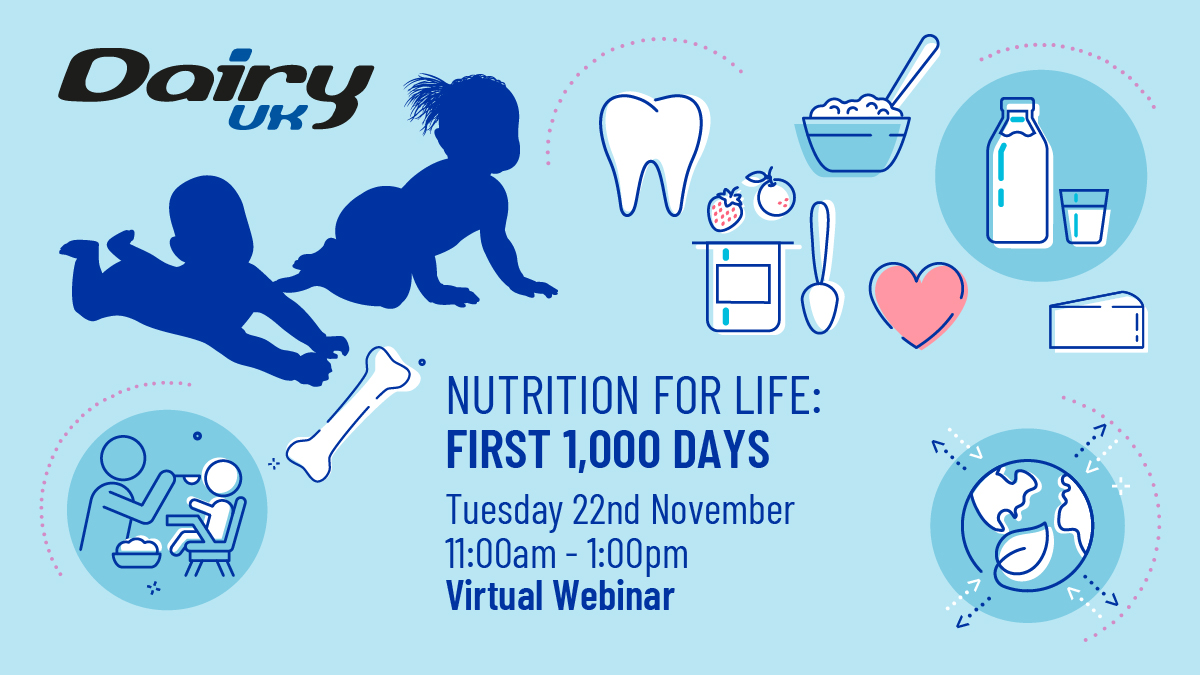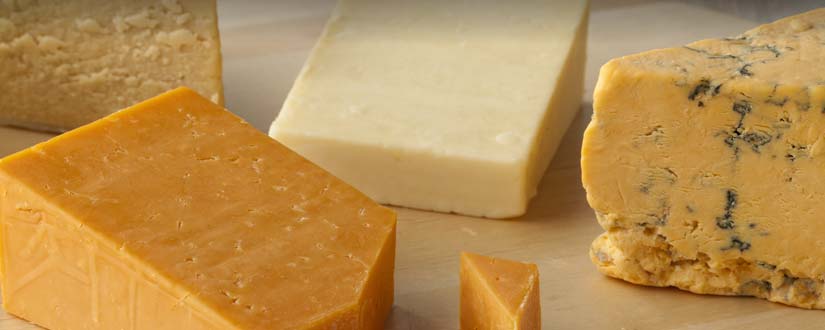
Dairy UK webinar this week examines essential role of dairy and its nutrients in the diets of pregnant women, infants and toddlers.
Good nutrition and its impact on our health in later life starts in pregnancy, as babies are developing. It’s now known that the first 1,000 days of life – the time from when a child is conceived until they are two years old is – are critical for future health. This week Dairy UK brought healthcare professionals together for a deep dive into the science behind the role dairy nutrients play in supporting nutrition and health during the first 1,000 days of life.
Dr Sarah Bath from the University of Surrey discussed the often-forgotten importance of iodine during pregnancy and the food sources – such as dairy – which can help us meet our iodine intakes. Dr Bath outlined how even mild iodine deficiency can have a detrimental impact on babies, with deficiency in pregnancy leading to adversely impacted brain development, and children showing lower scores relating to cognition, verbal IQ, working memory, accuracy and comprehension, spelling and writing, language and motor skills.
Dr Bath focused on research studies showing that women who don’t consume dairy, meat, fish or eggs are particularly at risk of iodine deficiency, with milk and dairy products providing more iodine to the UK diet than any other food group. Just three portions a day, particularly milk and yogurt, can help adults meet their recommended daily amount and can provide 85% of a pregnant woman’s recommended daily intake. She also highlighted that only 6% of plant-based drinks on the market are fortified with iodine and so those swapping dairy for a plant-based drink could also be at risk of iodine deficiency.
Dr Mary Flynn from the Food Safety Authority of Ireland (FSAI) explained FSAI’s latest modelling work in developing food-based dietary guidelines for 1- to 5-year-olds. This work showed how some young children could be at risk of not getting enough iron, vitamins D and E, essential fatty acids – DHA & EPA, zinc, and iodine from their diet. Milk and dairy products are the main food sources of calcium, zinc, and iodine for infants and toddlers in Ireland and are important vehicles for delivering these nutrients.
Finally, Laura Matthews, a registered nutritionist and early years nutrition expert, provided some practical advice on how and when to introduce dairy foods into infants’ diets, some helpful recipe ideas for those advising parents, and debunked some of the common myths many parents hear around dairy and weaning.
Commenting on the webinar, Erica Hocking – Senior Nutrition Scientist at Dairy UK said: “We know how beneficial dairy nutrients are for babies, toddlers and pregnant women but the webinar was a great opportunity to remind healthcare professionals how vital good nutrition during the first 1,000 days of life really is.
“Good nutrition, including the valuable nutrients in dairy, are crucial for supporting rapid growth, brain and immune system development of infants. Milk and dairy foods play such an important role in providing protein, calcium, iodine, and B vitamins to help meet those demands for growth and development.”
Watch the webinar here








